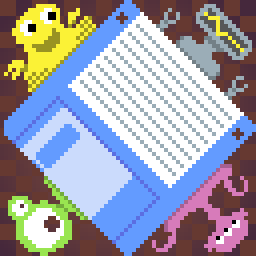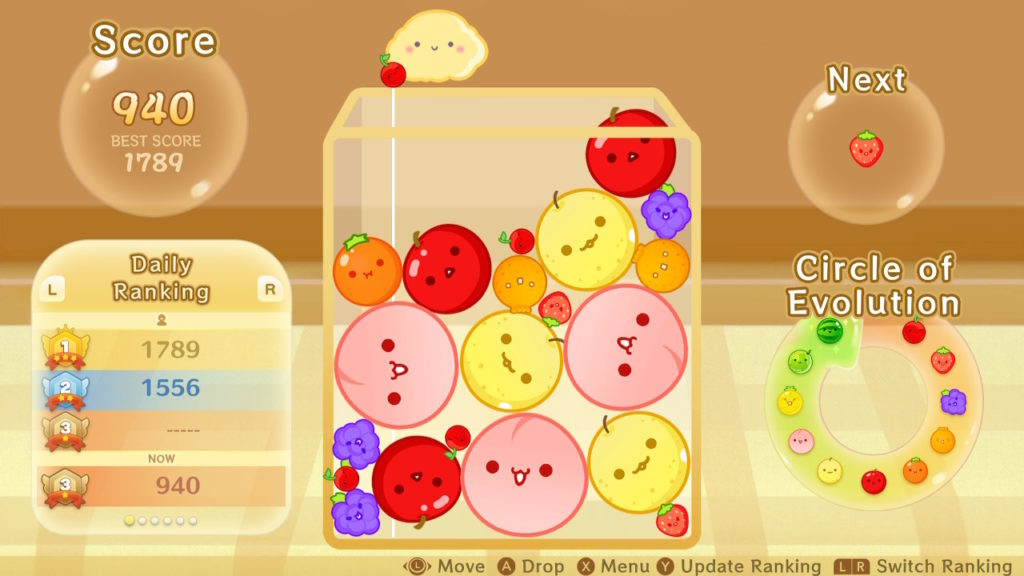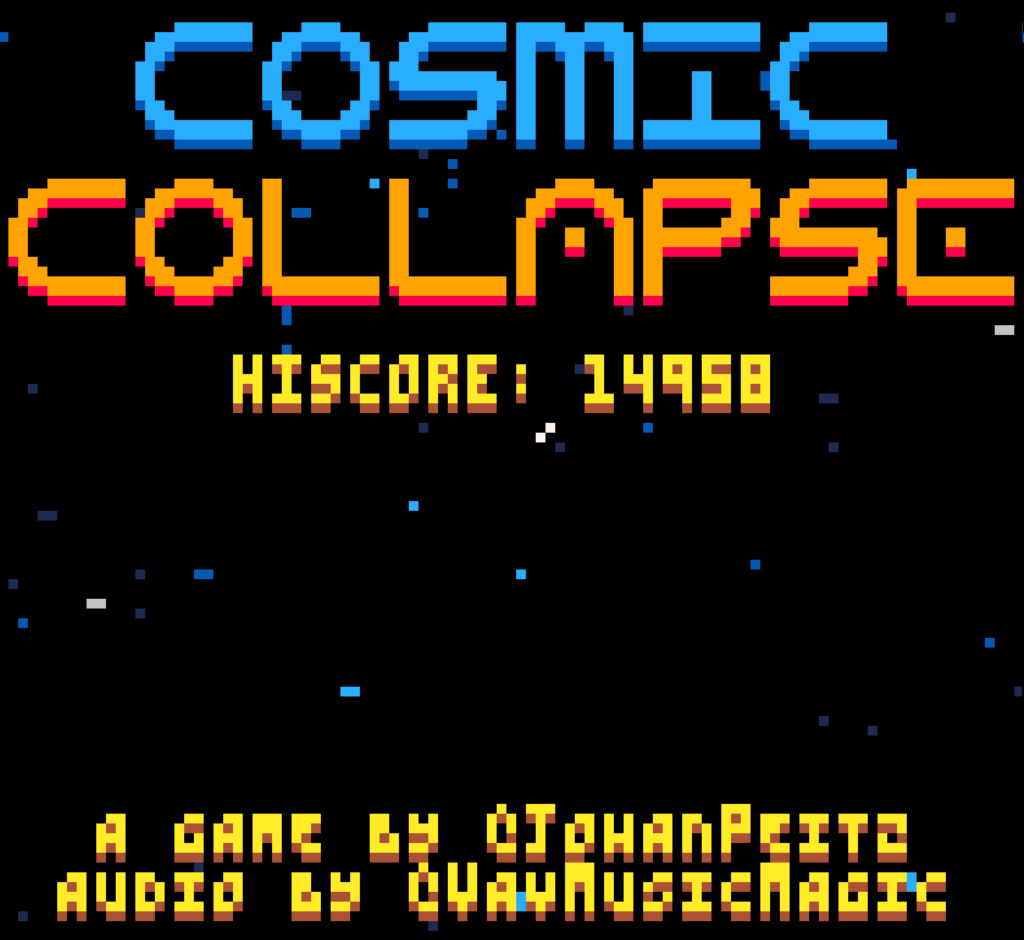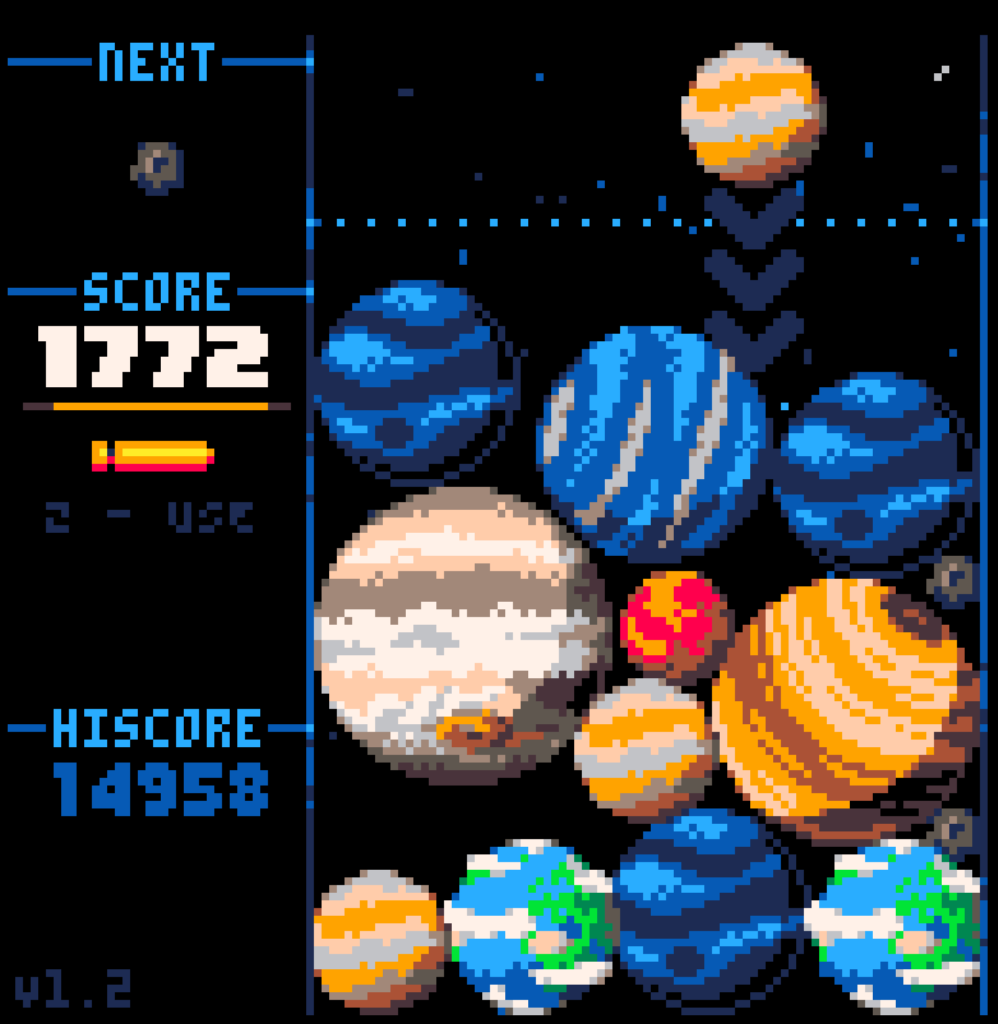
We love it when we find weird and unique indie games to tell you all about! Our alien friends to the left herald these occasions.
A fair amount has been said about Suika Game, an inexpensive and addictive Switch game that has players dropping fruit into a physics-enabled bin. Two fruit of the same type that touch immediately merge into a larger fruit, and the goal is to join them together like this until you create a mighty Watermelon. You can keep going at that point, although with one of those majestic spheres in the bin it won’t be much longer before one or more fruits extends up out of the bin, which brings the game to an end.

The history of this unexpected Flappy Bird-like phenomenon is laid out in an article in the Japan Times. Until recently the game was exclusive to the Japanese eShop, although that needn’t actually a barrier. People from any territory can create eShop accounts for any other, and play all their purchases on the same Switch, but now I notice that Suika Game is even on the U.S. shop. And of course, as often happens when a simple and elegant game blows up out of nowhere, a horde of imitators has arisen, which a quick Googling will reveal. I count six free web versions just on a quick perusal of the search results.
But what might actually be better than Suika Game is the Pico-8 recreation of it, Cosmic Collapse.

Cosmic Collapse is more expensive than Suika Game, but that just means it’s $5 instead of $3. Instead of happy fruit, you merge together planets. They go up in size from Pluto (an honorary planet), through Mercury, Mars, Venus, Earth, Neptune, Uranus, Saturn, Jupiter and then Sol herself. If you’re wondering, all planets are presented without rings. If joining two suns causes anything to happen I don’t know. (In the comments on the itch.io project, the developer says that there are objects beyond the Sun.)

Cosmic Collapse could be played just like the original, but it adds some extra features. Scoring is modified by a simple combo system: successive planets merged due to one drop have their points multiplied, encouraging the planning of sequences. And, at certain score awards, you’re granted a missile that can be used to destroy any one object in the bin. Used judiciously, it can allow your game lengths, and scores, to greatly increase. My highest so far is nearly 15,000.
The biggest advantages it has over Suika Game is in the polish and the physics. The many web clones tend to play like they were hacked together in an afternoon, but even the original is clearly a low-effort production, right down to its generic, non-looping music. The celestial orbs in Cosmic Collapse bounce around in a lively manner after merging in ways that take some practice to master, and even the smaller planets have their uses. The tiniest of space rocks, dropped at the right spot, can be just what you need to knock two other planets apart from each other, or separate one from the wall of the bin. You see? Pluto’s good for something after all!
Both Suika Game and Cosmic Collapse suffer from a certain unfairness. You don’t get to control the order in which fruit or planets get dropped into the bin. It’s been observed that even a lot of skill and practice can only get you so far if the orb-selection dice don’t roll favorably for you. The best advice I can offer, in the early game, is to try to sort the circles in size from one side of the bin to the other, which at least will make it easier to find a good place to drop things. Also in Cosmic Collapse, keeping the surface of the bin as low as you can helps a lot, since the propulsive force of the spheres, especially the smallest ones, is increased the further it falls, and that can be a marvelous prod to shaking up a static bin.
Cosmic Collapse (itch.io and Steam, $5)
